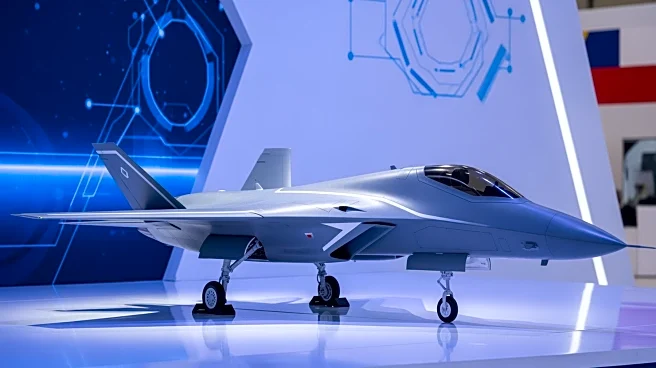What's Happening?
General Atomics Aeronautical Systems, Inc. (GA-ASI) is showcasing its advancements in autonomous combat jets at the International Fighter Conference. As the event's Four-Star Lead Partner, GA-ASI is highlighting
its growing fleet of unmanned combat jets, including the MQ-20 Avenger, XQ-67A Off-Board Sensing Station, and YFQ-42A Collaborative Combat Aircraft. These developments represent a significant step forward in autonomy and manned-unmanned teaming, with the company promising to deliver a production-representative uncrewed jet fighter for the U.S. Air Force by summer 2025. GA-ASI's commitment to innovation is evident in its Gambit Series of modular, scalable fighters, which aim to transform global air forces.
Why It's Important?
GA-ASI's advancements in autonomous combat jets have the potential to redefine military aviation, offering enhanced capabilities and cost-effective solutions for U.S. forces and international partners. The integration of cutting-edge autonomy software and rapid delivery at scale could significantly impact defense strategies, enabling more efficient and flexible operations. As global air forces evolve, GA-ASI's leadership in unmanned systems positions the company as a key player in shaping the future of combat aviation. The developments also underscore the growing importance of technology in military applications, with implications for defense policy and international security.
What's Next?
GA-ASI plans to continue its flight operations and production of unmanned combat jets, with the YFQ-42A CCA already in the air. The company is set to display a full-scale model of the YFQ-42A at the International Fighter Conference, offering attendees a glimpse into the future of combat aviation. As GA-ASI advances its technology, collaboration with the U.S. Air Force and other partners will be crucial in achieving its goals. The focus on autonomy and manned-unmanned teaming is likely to drive further innovation and partnerships in the defense sector.
Beyond the Headlines
The shift towards autonomous combat jets raises questions about the ethical and legal implications of unmanned warfare. As technology continues to advance, the balance between human oversight and machine autonomy becomes increasingly important. The potential for reduced human casualties and increased operational efficiency must be weighed against the risks of autonomous decision-making in combat scenarios. GA-ASI's developments highlight the need for ongoing dialogue about the role of technology in military operations and the future of warfare.











